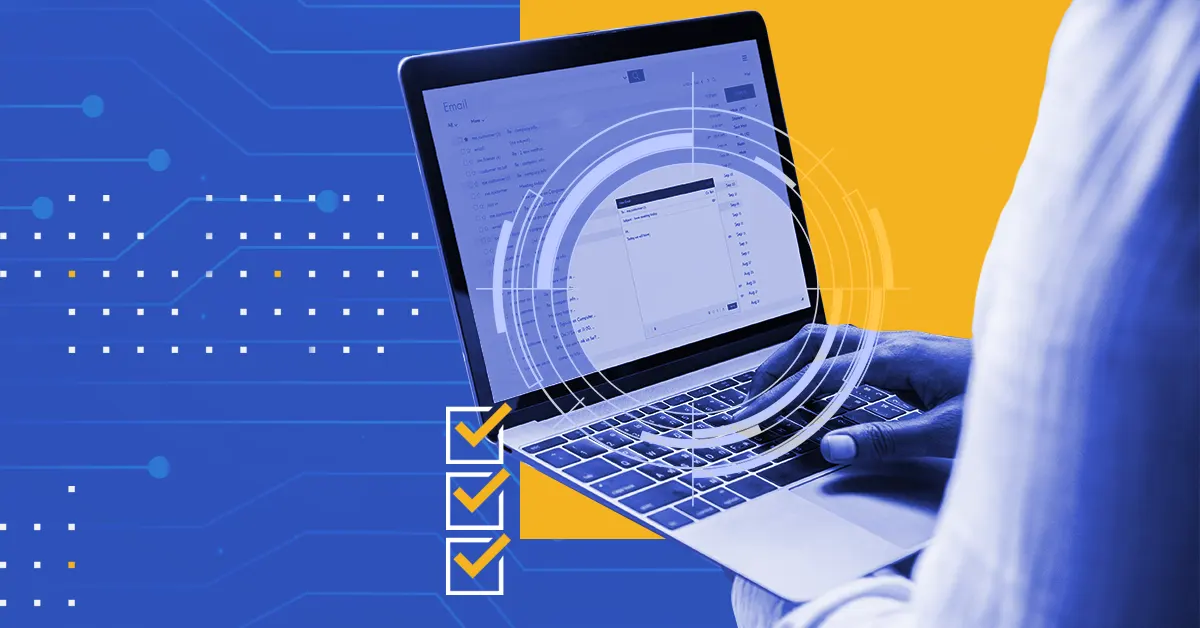The Importance of Email Compliance Solutions
Email compliance solutions refer to a set of tools, technologies, and practices designed to ensure that organizations meet legal, regulatory, and industry-specific requirements when it comes to email communications. These solutions help businesses protect sensitive information, maintain data privacy, and adhere to various compliance standards. In this article, we will explore some of the key aspects and benefits of email compliance solutions.
One of the primary concerns for organizations today is data security. Emails often contain sensitive information such as financial data, personal identifiable information (PII), trade secrets, or intellectual property. Email compliance solutions offer features like encryption, data loss prevention (DLP), and secure archiving to safeguard this information. Encryption ensures that email content is protected from unauthorized access, while DLP tools can prevent accidental or intentional data leaks by monitoring outgoing emails for sensitive content and applying appropriate policies.
In addition to data security, email compliance solutions also address legal and regulatory requirements. Depending on the industry and geographic location, organizations must comply with various regulations such as the General Data Protection Regulation (GDPR) in the European Union, the Health Insurance Portability and Accountability Act (HIPAA) in the healthcare industry, or the Payment Card Industry Data Security Standard (PCI DSS) for organizations handling credit card information. Email compliance solutions assist in meeting these requirements by providing features like audit trails, legal hold, and retention policies.
An audit trail is a record of all email activities, including sent and received messages, attachments, and any modifications made to emails. This trail can be used to demonstrate compliance with legal or regulatory obligations and to investigate any potential violations. Legal hold refers to the ability to preserve email content for a specified period, even if the user tries to delete it. This feature is crucial for litigation or investigations where organizations must retain relevant emails. Retention policies allow organizations to define the duration for which emails should be stored before being automatically deleted. This helps manage storage resources efficiently and ensures compliance with data retention requirements.
Another critical aspect of email compliance solutions is e-discovery. In the event of a legal dispute or investigation, organizations may be required to produce relevant emails as evidence. Email compliance solutions facilitate e-discovery by offering advanced search capabilities, legal hold functionality, and export features. These tools enable organizations to quickly identify and retrieve relevant emails, apply legal holds to prevent deletion, and export the emails in a format suitable for legal proceedings.
Moreover, email compliance solutions often include features for email monitoring and content filtering. Monitoring capabilities allow organizations to track and analyze email usage patterns, identify potential security risks, and detect policy violations. Content filtering, on the other hand, helps enforce email usage policies by automatically flagging or blocking emails that violate predefined rules. These rules can cover various aspects such as offensive language, inappropriate attachments, or the transmission of classified information.
Implementing email compliance solutions brings several benefits to organizations. Firstly, they help mitigate the risk of data breaches, ensuring that sensitive information remains protected. By employing encryption and DLP mechanisms, businesses can prevent unauthorized access or accidental leaks of confidential data. Secondly, compliance solutions provide organizations with a structured approach to meeting legal and regulatory requirements. This not only reduces the risk of penalties and legal consequences but also fosters trust among customers and partners who value data privacy and security.
Additionally, email compliance solutions enhance organizational efficiency. Advanced search and retrieval capabilities streamline e-discovery processes, saving time and effort when dealing with legal requests. The automation of retention policies and archiving procedures reduces the burden on IT departments, freeing up resources for other critical tasks. Moreover, by proactively monitoring email communications and enforcing usage policies, organizations can maintain a secure and productive digital environment.
Email compliance solutions play a vital role in helping organizations adhere to legal, regulatory, and industry-specific requirements related to email communications. These solutions provide data security, address compliance obligations, facilitate e-discovery processes, and enhance operational efficiency. By implementing email compliance solutions, businesses can protect sensitive information, ensure data privacy, and maintain the trust of their stakeholders in an increasingly interconnected and regulated digital landscape.
The Importance of Email Compliance Solutions
Email compliance solutions play a vital role in today’s digital landscape, where email communication has become an integral part of business operations. These solutions ensure that organizations adhere to legal, regulatory, and industry-specific requirements, helping to mitigate risks, protect sensitive information, and maintain the trust of customers and business partners. The importance of email compliance solutions can be understood from various perspectives.
First and foremost, email compliance solutions enable organizations to comply with applicable laws and regulations. Depending on the industry and geographical location, businesses may be subject to a range of legal requirements regarding data privacy, security, retention, and disclosure. Email compliance solutions help organizations ensure that their email communications meet these obligations, reducing the risk of non-compliance penalties, fines, and legal disputes.
Email compliance solutions also play a crucial role in protecting sensitive information. Emails often contain confidential data, such as financial records, customer information, intellectual property, and trade secrets. Failure to adequately protect this information can result in data breaches, reputational damage, and financial losses. Email compliance solutions provide features like encryption, secure archiving, and access controls, helping to safeguard sensitive data from unauthorized access and ensuring its integrity throughout the communication lifecycle.
Moreover, email compliance solutions help organizations maintain the trust and confidence of their customers and business partners. In today’s era of increasing data breaches and privacy concerns, individuals and organizations expect their sensitive information to be handled securely. By implementing email compliance solutions, businesses demonstrate their commitment to data protection and regulatory compliance. This fosters trust and reassures stakeholders that their information is being handled responsibly, leading to stronger relationships and improved reputation.
Email compliance solutions also facilitate efficient and effective business operations. They streamline processes related to email management, retention, and retrieval. These solutions often include features such as automated archiving, email classification, e-discovery, and advanced search capabilities, which enable organizations to quickly locate and retrieve specific emails or attachments when needed. This not only saves time and effort but also ensures that organizations can respond promptly to legal inquiries, regulatory audits, or internal investigations.
Furthermore, email compliance solutions help organizations establish and enforce internal policies and procedures. They provide mechanisms for organizations to define and monitor email usage guidelines, such as acceptable use policies, data handling protocols, and email retention periods. By enforcing these policies, businesses can prevent inappropriate use of email, reduce the risk of data leaks, and ensure consistency in email management practices across the organization.
What makes an email compliant?
Ensuring email compliance is essential for businesses and organizations to maintain regulatory standards, protect user privacy, and establish trust with recipients. Compliance requirements may vary depending on the industry and location, but there are several key factors that contribute to making an email compliant.
Consent: One of the fundamental principles of email compliance is obtaining explicit consent from recipients before sending them marketing or promotional emails. Consent should be freely given, specific, and informed. This means that individuals should be fully aware of what they are consenting to and have the option to opt out at any time. Businesses should maintain records of consent, including the time, date, and method of obtaining it.
Unsubscribe option: Every commercial email must provide recipients with a clear and easy way to unsubscribe from further communications. This typically involves including an unsubscribe link in the email footer or providing instructions on how to opt out. When a recipient chooses to unsubscribe, their request should be honored promptly, and they should not receive any further marketing emails.
Sender identification: Email compliance requires the sender to provide accurate identification information. This includes the sender’s name, organization, and contact details. Using misleading or deceptive information is not allowed, as it undermines trust and can potentially violate anti-spam regulations.
Subject line accuracy: The subject line of an email should accurately reflect the content of the message. Misleading or deceptive subject lines are not compliant and can lead to spam complaints or legal issues. It is important to avoid sensationalized or clickbait-style subject lines that may mislead recipients.
Physical address: Including a valid physical mailing address in the email is a common requirement for compliance. This allows recipients to identify the sender’s location and establish a sense of transparency. The physical address should be easily visible and accurate.
CAN-SPAM Act compliance: In the United States, the CAN-SPAM Act sets the guidelines for commercial email communications. Complying with this law involves several aspects, including honoring unsubscribe requests promptly, including a valid physical address, providing accurate sender information, and not using deceptive subject lines or headers.
General Data Protection Regulation (GDPR) compliance: In the European Union, the GDPR regulates the processing of personal data. To comply with GDPR, businesses must ensure they have a lawful basis for processing personal data, obtain explicit consent for marketing emails, provide clear privacy notices, and allow individuals to exercise their rights, such as the right to access and delete their data.
Data security and encryption: Email compliance also extends to protecting the security and privacy of the data transmitted through email. Encrypting sensitive information, such as financial or personal data, adds an extra layer of security and helps prevent unauthorized access or interception.
Records retention: Some industries, such as healthcare and finance, have specific requirements for retaining email records. Compliance may involve retaining emails for a certain period, ensuring they are securely stored, and being able to produce them if required for legal or regulatory purposes.
Regular audits and updates: To maintain email compliance, it is important to periodically review and update email practices. This includes reviewing consent mechanisms, updating privacy policies, and staying informed about any changes in relevant regulations.
Email compliance encompasses a range of factors, including obtaining consent, providing an unsubscribe option, accurately identifying the sender, using appropriate subject lines, including a physical address, complying with relevant laws such as CAN-SPAM and GDPR, ensuring data security, retaining records when necessary, and regularly auditing and updating practices. By adhering to these guidelines, businesses and organizations can establish trust, protect user privacy, and avoid legal issues associated with non-compliant email practices.
Conclusion
In summary, email compliance solutions are of paramount importance in today’s digital landscape. They enable organizations to comply with legal and regulatory requirements, protect sensitive information, maintain trust with stakeholders, and streamline business operations. Implementing robust email compliance solutions helps organizations mitigate risks, avoid legal penalties, and safeguard their reputation in an increasingly complex and interconnected world. With the ever-growing importance of email as a primary means of communication, investing in email compliance solutions is not only prudent but also essential for the long-term success and security of modern businesses.
Frequently Asked Questions
Several regulations impact email compliance, such as the General Data Protection Regulation (GDPR) in the European Union, the California Consumer Privacy Act (CCPA), the Health Insurance Portability and Accountability Act (HIPAA) in the healthcare industry, and the Sarbanes-Oxley Act (SOX) for financial reporting, among others.
Non-compliance can result in severe consequences, including legal actions, fines, reputational damage, loss of customer trust, and even criminal charges. Breaches of privacy and data security can lead to data leaks, identity theft, and significant financial losses.
Email compliance solutions provide features and tools to ensure that email communications align with legal and regulatory requirements. They offer functionalities such as data encryption, secure archiving, e-discovery capabilities, data loss prevention (DLP), and advanced access controls to mitigate risks and maintain compliance.
Email compliance solutions often include features like encryption and secure transmission protocols to protect sensitive data from unauthorized access. They help organizations safeguard customer information, financial data, intellectual property, and other confidential information shared via email.
Yes, email compliance solutions typically include features for archiving and retaining emails as per regulatory requirements. They facilitate easy search and retrieval of emails during audits, legal proceedings, or compliance investigations.




